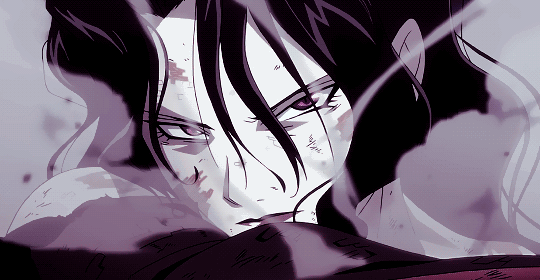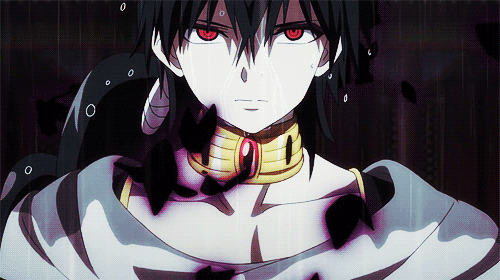 |
| from full metal alchemist |
 |
| from magi: labyrinth of magic |
- HD: 1d4
- Saves: as Magic-user
- XP: as Magic-user
- Prerequisite: have an emissary of the Orminger King join your village. New characters can be warlocks once the prerequisite is met, but existing magic-users can select it as a subclass.
The first time you roll on the Warlock table, you gain the ability to assume a monstrous aspect at will, giving you +1 Defense and allowing you to deal d6 damage with unarmed attacks. You cannot wield weapons or wear armor, in this form and most civilized peoples will attack you on sight. If they see you transform, they will seek to jail or execute you, even in human shape. Moreover, while you wear your monstrous shape, the Referee may require you to make a Wis check to resist the impulse to do something greedy or spiteful, if a compelling opportunity presents itself. The appearance of your monster-shape is up to you, though your face always remains the same even as your body changes.
|
roll
|
new ability
|
|
1-40
|
+1 Spell Die
|
|
41-60
|
+1 Save
|
|
61-65
|
Your beast form gains one of the following movement types: climb, swim, clumsy flight. Pick another on reroll.
|
|
66-70
|
Your beast form gain skill of your choice from the following list: Track, Sense, Camouflage. Pick another on a reroll.
|
|
71-75
|
Your beast form’s size becomes Large and you gain +1 to Str and -1 to Dex checks. Lose the Dex penalty on reroll.
|
|
76-80
|
Your beast form has armor as leather/chain/plate.
|
|
81-85
|
Wormtongue. Gain a skill of your choice from the following list: Tempt, Deceive, Intimidate. Pick another on a reroll.
|
|
86-90
|
Dark Glamor. At will, you can wrap yourself in a mantle of dark power, allowing you to transform your clothing as you please and making you appear taller, more imposing, perhaps more appealing and perhaps more hideous. In this aspect your have +1/2/3 Disposition Die size from those prone to temptation and sycophancy; -1 Disposition Die size from those who value basic decency and bravery.
|
|
91-95
|
Minions. You have 1/2/3 Level 0 homunculi allies. They are dark silhouettes of humans, suggestive of ooze in the way their bodies give and sway with each motion. If they wear human clothes, nobody will be able to notice that their appearance is strange. If they die or get lost, you can brew one per downtime up to your max. They are very stupid.
|
|
96
|
Covenant. If someone breaks the word of a promise they made to you, they suffer a -2/4/6 penalty on their saving throws against your spells, and you instinctively know their direction and approximate distance. It must be a promise you genuinely wanted kept, and this ability ceases to function if you forgive them for their transgression.
|
|
97
|
All Shall Love Me. +1/2/3 Faction Die size with monsters.
|
|
98
|
Forbidden Power. When you cast a spell, you can choose to roll with d8s/d10s/12s instead. Each die still expends on a result of 4+.
|
|
99
|
Menace. Enemies in line of sight of you suffer -1/2 Morale.
|
|
100
|
Dark Garden. You rule a 1 acre demiplane that contains your lair. Its appearance is a matter of negotiation between you and the Referee. It can house and feed 1/2/3 people per day. It is totally inaccessible, but if you spend a long rest in a civilized place, you can choose to incorporate the gate to your demiplane into the location in such a way that even longtime locals may not notice it. If you close the gate to your demiplane from the outside, you can choose to send it away again. Anything native to your lair taken out of it vanishes into thick black smoke as soon as it crosses the threshold.
|
 |
| from spirited away |
A man’s impassive face, pale and immense, set onto a black-furred body, sinuous, graceful, larger than an elephant, walking on the fingertips of splayed human hands. Its great wings are like a crow’s. It is mad, mournful, vicious. It lives in the ruins of the Royal Archives, gently turning pages with giant fingertips. It brews and decants shadow-fleshed homunculi to send on raids for occult reagents and, once in a rare while, companions. It knows many spells of darkness and transformation.
Magic
 |
| from sailor moon |

